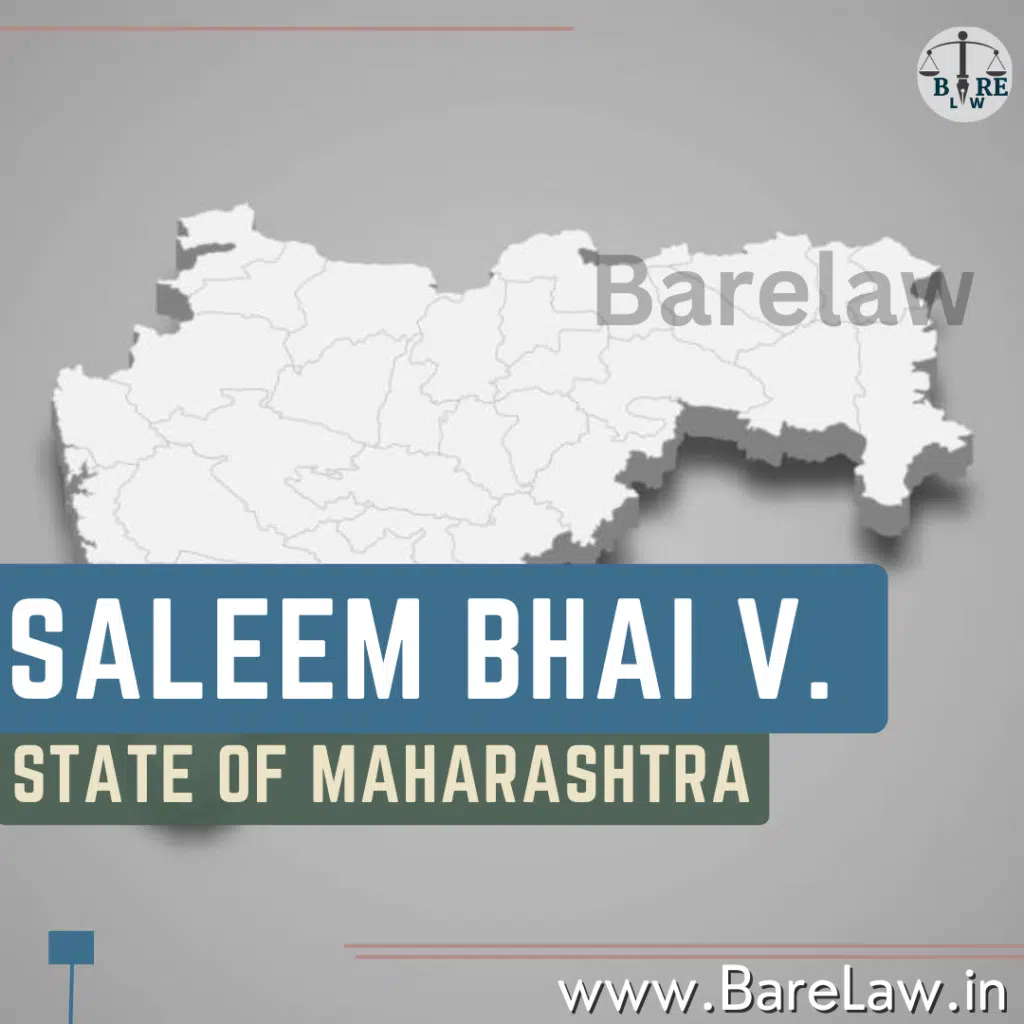
Saleem Bhai v. State of Maharashtra: A Landmark Judgment on Order VII Rule 11 of CPC | BareLaw
Saleem Bhai v. State of Maharashtra: A Landmark Judgment on Order VII Rule 11 of CPC
Introduction: The Supreme Court of India gave a landmark decision in the case of Saleem Bhai v. State of Maharashtra, AIR 2003 SC 759, which has become a milestone in interpreting Order VII Rule 11 of the Civil Procedure Code (CPC). This article delves into an extensive analysis of the case, its background, legal questions it raised and implications to Indian legal system.
Background of the Case: The case arose out of a Special Leave Petition filed under Article 136 of the Indian Constitution. The defendants urged that plaintiff’s plaint ought to be dismissed for want of cause action under Order VII Rule 11 CPC. Therefore, both trial court and High Court ruled against defendant, leading to appeal before Supreme Court.
Legal Question: What is at stake is whether an application under Order VII Rule 11 CPC must be limited only to allegations made in the plaint without considering any written statement by defendant?
Supreme Court’s Decision: It was held by the supreme court that while disposing off a plaint on order vii rule eleven; it is only possible if done according to what has been averred in the plaint alone. Where there is no cause or even cases where there are no claims stated therein then this court would have no alternative but reject them without requiring written statements from defendants.
Implications: This judgment had clear consequences on how civil cases were being handled in India. This included clarifying application and scope of Order VII Rule 11 as well as highlighting significance of what was stated in complaint when deciding course(s) for civil litigation. Furthermore, it could smoothen these processes thereby possibly reducing unnecessary litigation and delays during trial sessions.
Conclusion: Saleem Bhai v. State of Maharashtra stands as a very important precedent in civil procedural law which enhances efficiency in judicial process besides reinforcing judicial prudence principle.It remains a key reference for legal practitioners and scholars who need to grasp intricacies introduced through Civil Procedure Code in India.



